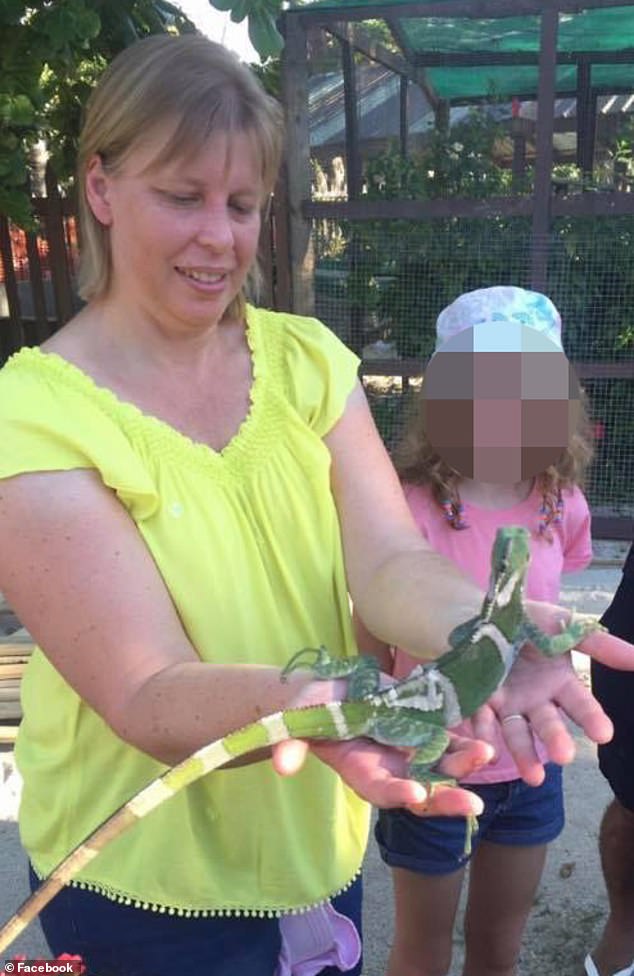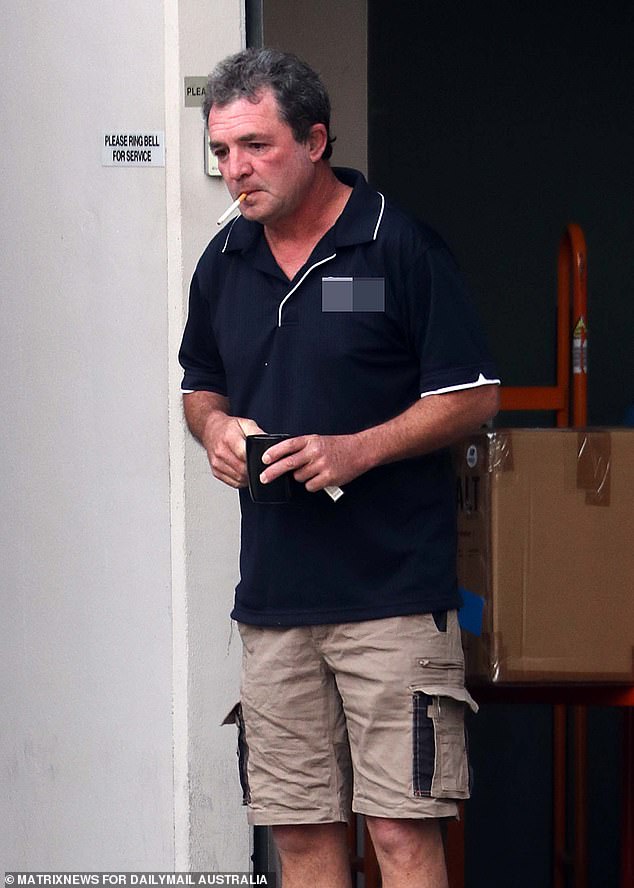Andrew and Robyn loaned money to their daughter to renovate houses with her partner… but a tragic turn of events dragged the family into court with the couple demanding their $135k back
An elderly couple who loaned their daughter and her husband over $135,000 to purchase and renovate several homes have successfully won a lawsuit against their former son-in-law, who was ordered to repay the money after their daughter died of cancer.
Andrew and Robyn Mereniuk provided three large loans to their daughter Louise and her husband Matthew Wilks between April 2006 and August 2017 so they could purchase and renovate homes for themselves and their three daughters.
But all requests for loan repayments came to an abrupt halt in August 2016 when Louise was diagnosed with colon cancer. She died of the disease in January 2019.
Mr and Mrs Mereniuk filed a lawsuit against Mr Wilks in November 2022 seeking restitution after they fell out with him over an affair he had with another woman in the six months before Louise’s tragic death, a New South Wales District Court ruling revealed.
Mr Wilks argued in court that he knew nothing about the loans, but also claimed that they were gifts to his now-deceased wife.
However, Judge Judith Gibson described Mr Wilks as a “completely unreliable witness” and awarded Mr and Mrs Mereniuk $135,269 towards the outstanding amount.
Mr Wilks reportedly plans to appeal the verdict.
The case highlighted the tricky legal issue of the ‘Bank of Mum and Dad’ and whether payments to family members are considered gifts or loans, Judge Gibson said.
Andrew and Robyn Mereniuk provided three large loans to their daughter Louise and her husband Matthew Wilks (pictured) between April 2006 and August 2017, enabling them to purchase and renovate properties for themselves and their three daughters.

But all loan repayments came to an abrupt halt in August 2016 when Louise (pictured) was diagnosed with bowel cancer. She died from the disease in January 2019.
The story began in April 2006, when Mr Mereniuk offered to buy materials and renovate the Baulkham Hills home his daughter shared with her husband.
“We can buy the materials and you and Louise can pay us back when you can afford it,” Mr Mereniuk said.
In total, they transferred $169,000, tracking the cost of materials purchased and money borrowed in a spreadsheet.
“Significant repayments” by Mr. and Mrs. Wilks later reduced this amount to $28,254.
In April 2012, a second loan of $76,000 was provided to assist Mr and Mrs Wilks in purchasing a larger property in Kellyville, approximately 35 km northwest of Sydney’s CBD.
But a year earlier, in February 2011, Mr and Mrs Mereniuk had expressed their “disappointment” that Mr and Mrs Wilks were spending too much.
“The $35,000 over three years means that you are both spending about $12,000 a year more than you earn. Or, you have thrown caution to the wind and are spending it like it’s your own,” Mr. Mereniuk wrote.
“The reason we lent you the money in the first place was to help both of you and it seems we certainly accomplished that, as you both helped yourselves. The latter was not our intention or desire.”
Mr. Mereniuk indicated that they spent $15,000 more than they initially budgeted.
“Have you two stopped budgeting? Does Matthew spend what he earns on himself? Smoking, drinking, eating lunch, etc.?” he wrote.
“What did you two think? That you were going to pay it back, and if so, within what time frame?”
He added: ‘I said earlier that you’ve been overspending by $12,000 a year, which works out to about $250 a week. The two of you need to sit down and figure out what you can cut and what you can reduce. Otherwise, in the long run, you’re either going to lose your home or have to downsize.

In February 2011, Mr Mereniuk suggested that his son-in-law quit smoking because “it amounts to about $30-40 a week”
“We are not here to support you or save your marriage.”
Mr Mereniuk also suggested that his son-in-law quit smoking, as “it amounts to about $30-40 a week.”
“We are not bitter, nor do we desire the full return of the money. What we do desire, however, is the return of the remaining money from the two counter accounts,” he wrote.
“We also want a commitment from both of you that you will not touch the re-admission amount. If you can’t make that commitment, then you might as well take the money out and give it back to us as well.”
Mr Wilks denied knowledge of the transactions, but also claimed they were gifts to his now-deceased wife.
These seemingly contradictory arguments found no sympathy with Judge Gibson. He accused Gibson of being a “wholly unreliable witness, whose account of events was not only improbable but at times wilfully false.”
‘The defendant’s claim that he never knew how much money he had in the bank or consulted his bank or financial records, but instead telephoned Louise every time he wanted to make a purchase or withdraw money, is entirely implausible, particularly as he was running a business at the time, which required regular access to the bank and examination of bank records,’ concluded Judge Gibson.
In 2015, Mr and Mrs Wilks decided to move to Tumbi Umbi on the Central Coast of New South Wales.
They had planned to sell their Kellyville estate to finance the purchase, but then Mrs Wilks was diagnosed with cancer in August 2016 and “everything changed”.
Mr and Mrs Mereniuk claim that they advanced a total of $80,000 on the condition that the total amount, plus the $80,000, would be repaid when the Tumbi property was eventually sold.
Mr. Wilks sold the property in December 2019, almost a year after his wife’s death.

In 2015, Mr and Mrs Wilks decided to move to Tumbi Umbi on the Central Coast of New South Wales (pictured)
He kept the proceeds, “except for an amount of $154,000 which was deposited in an attorney’s trust account pending the outcome of these proceedings,” the ruling said.
It is also understood that Mr and Mrs Mereniuk attempted unsuccessfully to challenge Mr Wilks’ claim to their daughter’s pension with the Australian Financial Complaint Authority.
The ruling noted that both parties had “not only a financial interest in the outcome, but also a degree of hostility.”
“The plaintiffs believed (and correctly so) that the defendant’s absence from work in the six months prior to Louise’s death from cancer was due to his having an affair with another woman,” Judge Gibson wrote.
It was revealed that the grandparents took on ‘the parental role’ of their daughter’s children before she passed away, after ‘marital problems’ arose between Mr and Mrs Wilks.
Ultimately, the judge ruled that the money had been provided in the form of a loan and not a gift.
“Plaintiffs provided financial assistance to defendant and Louise in the form of a series of separate loans for separate purposes, but as “Mom and Dad’s Bank,” not as “Mom and Dad’s Gift Shop,” Judge Gibson wrote.
‘They expected repayment but at the same time they took into account matters of love and affection. Particularly when Louise was dying of cancer and the marriage was clearly in trouble, they refrained from asking for money in circumstances where I am satisfied that there was an understanding that further repayments would not be necessary until the property at Tumbi Umbi was sold.’
But it acknowledged that ‘courts in the future may find that the phenomenon of the ‘Bank of Mum and Dad’ will be interpreted differently’.
The ruling cites research by the Productivity Commission which found that ‘if Mum and Dad were a real bank it would be somewhere between the fifth and ninth largest mortgage lender in Australia’.
When asked for comment by Daily Mail Australia on Thursday, Wilks said he felt he had been treated “prejudicially”.
“I can’t comment on it at this time, but I would like to talk to you about it later, because I have been affected. But at this time I don’t want to make a statement,” he said.
